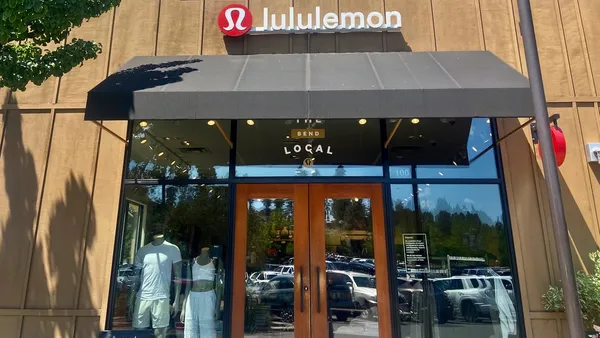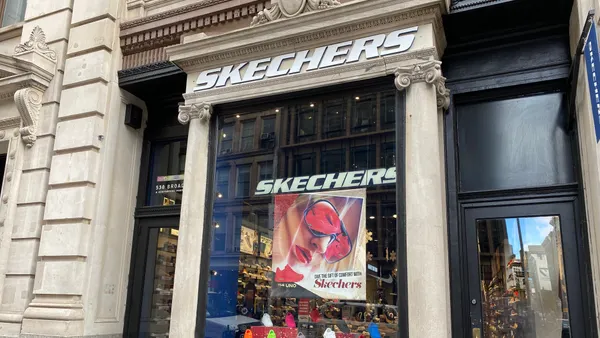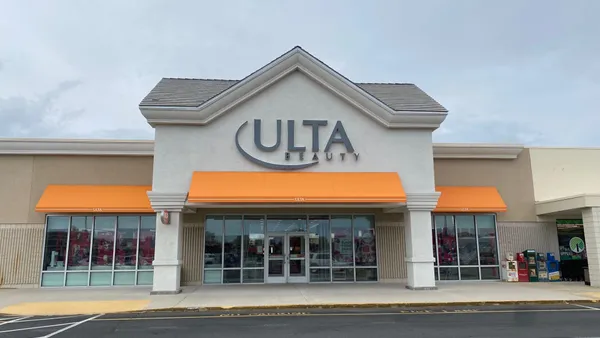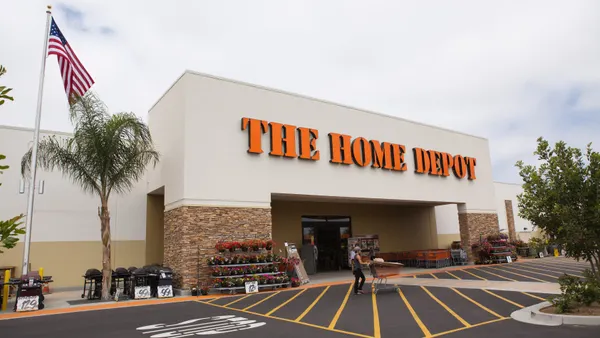Dive Brief:
- Lowe’s reported on Wednesday that net sales increased 10.7% to $16.9 billion in the first quarter compared with the year-ago period. However, that figure fell short of analyst expectations of $19.5 billion, according to Thomson Reuters data, sending the stock down about 3% in pre-market trading. Comparable sales increased company-wide by 1.9% and by 2% in the U.S. FactSet data cited by CNBC forecasted 2.9% growth in comparable sales.
- The home improvement retailer logged Q1 earnings of $602 million (or 70 cents in diluted earnings per share), compared to net earnings of $884 million in the same period last year. Excluding a $464 million loss related to the company’s $1.6 billion cash offer in April for outstanding company debt, Lowe’s adjusted diluted earnings came in at $1.03 per share, an increase of 18.4% over the same period last year but just short of analyst expectations of $1.06 per share, according to Thomson Reuters.
- “A solid macroeconomic backdrop, combined with our project expertise, drove above average performance in indoor projects,” Robert Niblock, Lowe’s chairman, president and CEO, said in a press release. “We also continued to advance our sales to Pro customers, delivering another quarter of comparable sales growth well above the company average.”
Dive Insight:
Despite sales increases that contrast favorably with far gloomier earnings reports from many other retailers, home improvement retailer Lowe’s still came up short against expectations, especially in the wake of rival Home Depot’s strong recent earnings report . Both home improvement players have benefited from a steadily improving housing market and domestic economy, and remain relatively insulated from the encroachment of e-commerce on their market share and sales. The home improvement sector is among the healthiest in retail, and Moody’s Investors Service analysts at year’s end said they expect that to continue.
"The same-store numbers are perfectly respectable but are notably weaker than the figures Home Depot put out earlier in the month," Neil Saunders, Managing Director of GlobalData Retail, said in comments emailed to Retail Dive. "In our view, Home Depot still has the edge when it comes to brand visibility with customers undertaking bigger hard-improvement projects — something that has served it well over the past few months. To be fair, Lowe's is not completely deficient in these areas, but it does play second-fiddle to its bigger rival."
But it is only fair to say that against the wider context of the retail market, Lowe's figures are solid, he added.
This isn't the first time Home Depot has outshined Lowe's in recent earnings reports: In November, Lowe’s lowered its guidance after its Q3 results missed analyst expectations while Home Depot maintained its guidance, posting strong same-store sales and traffic. But by other measures, Lowe’s is demonstrating higher productivity, according to Market Realist.
The last year has seen Lowe’s make a series of organizational changes as the company seeks to differentiate itself and capitalize on opportunities in a favorable segment. The company announced in January it would cut 2,400 jobs across its 285,000-employee U.S. workforce. The cuts were aimed to “better align store staffing with customer demand, shift resources from back-of-the-store activities to customer-facing ones, and enhance our efficiency and productivity," according to an internal memo obtained by the Charlotte Business Journal.
Lowe’s also announced in January that it would promote Marshall Croom, a 20-year Lowe’s veteran, to the chief financial officer position following Robert Hull Jr.’s departure from the company. Just days later, Lowe’s named Jocelyn Wong, a former Family Dollar executive who joined Lowe’s in 2015, as its new chief marketing officer. The shakeup suggested Lowe’s was looking for new energy in how it appeals to, approaches and interacts with customers.
The company has also been pushing hard into new technologies that can enhance the consumer experience, including robots, virtual and augmented reality, and a partnership announced in November with customer engagement startup b8ta to feature smart home devices and other devices in a store-within-a-store model.













